Enhanced insight into E-mail statistics
March 2025
Which emails do members actually receive from the platform? How can I gain insight into these emails? Are emails even being opened by (specific) members?
In recent months, we’ve worked hard to enhance the statistics within our Yunits software, providing clearer insights into the performance of email notifications. Thanks to our transition to an external mail server (Brevo) in 2024/2025, we can now offer detailed statistics to administrators of Yunits platforms.
Reports
These statistics provide insight into data and the reach of notifications and any triggers, provided these are used within your community. Using simple filters, you can review the overview quarterly and immediately see what percentage of emails have been received, opened, or remained unopened. You’ll also gain insight into how often notifications have been sent.
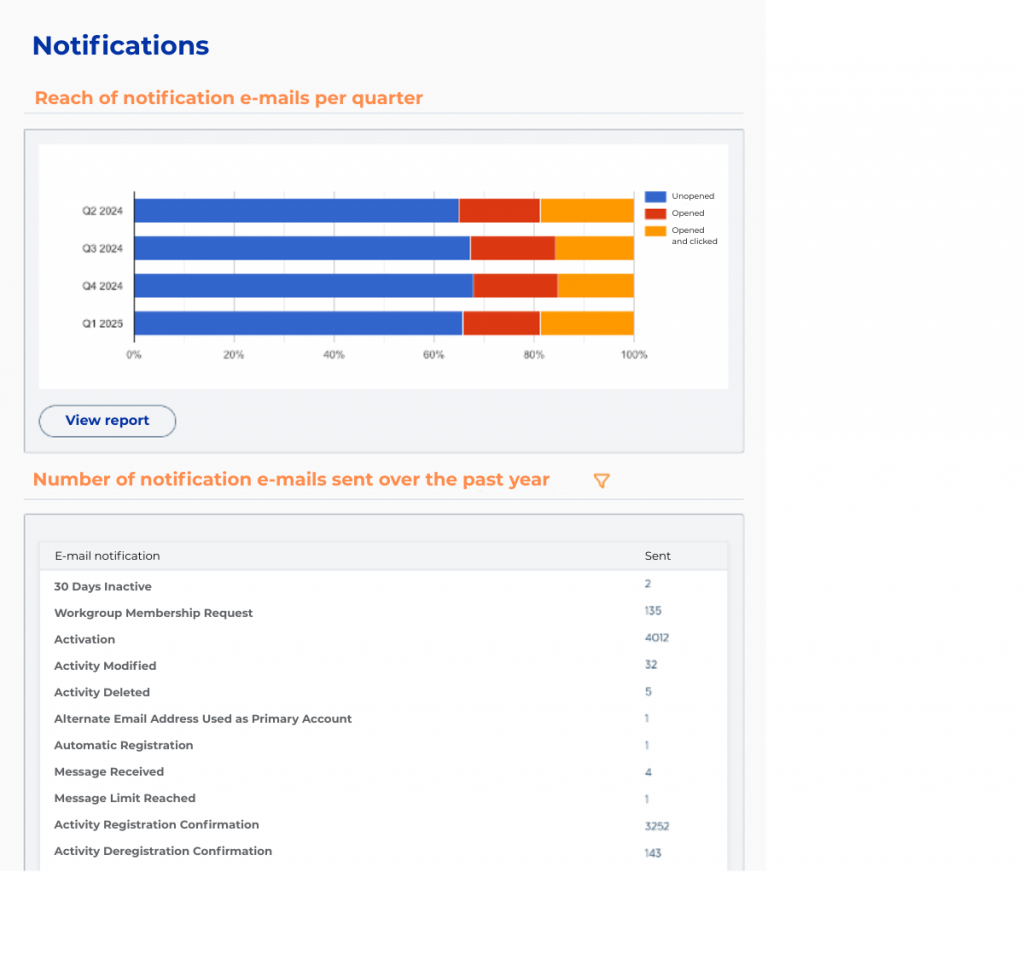
Statistics for Questions & Answers
For individual questions within the Questions & Answers module, statistics are visible to administrators and the person who asked the question.
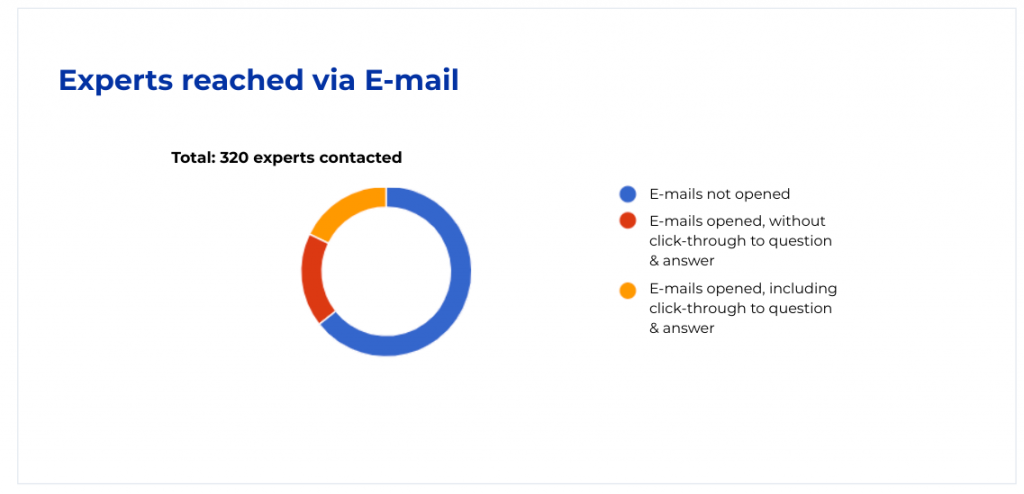
These features are being rolled out in phases and have been available since 4 March.
Launch of renewed Yunits Connect platform
February 2025
On the renewed Yunits Connect platform, Yard Digital Agency supports users of Yunits community software with updates, inspiration, and strategies to elevate your online community to the next level. Here you can stay informed, exchange experiences, and collaborate to build even better online communities.
Here, Yunits customers will find:
- The latest news about updates, new modules, and innovations in Yunits community software
- Inspiration about community management and strategy
- Scheduled “What’s New @ Yunits” customer sessions, which you can register for immediately
- Questions & Answers, enabling you to ask for and provide help to other Yunits users about community management and strategy
- Other Yunits users to connect with
- Team Yunits from Yard Digital Agency, who you can contact directly
We also gather feedback via Yunits Connect and invite customers to contribute ideas for product development.
Is your organisation a Yunits customer and you don’t have an account for this platform yet? Register here!
Integration of Yunits platform with (WordPress) website
October 2024
Do you already have an existing (WordPress) website alongside the Yunits platform? If so, you can now automatically publish content from your platform to your website, and vice versa. For example, news posts or event items. A major advantage is that the content is displayed on both platforms, but you only need to manage it in one place.
Conference module
June 2024
Within the conference module, you can conveniently share all the information about the conference in one place. Through a logical navigation structure within the module, you can step-by-step share all the important information, such as the programme, speakers, and participant registration. This way, the conference and the community strengthen each other. We have also added this module to the Yunits app.
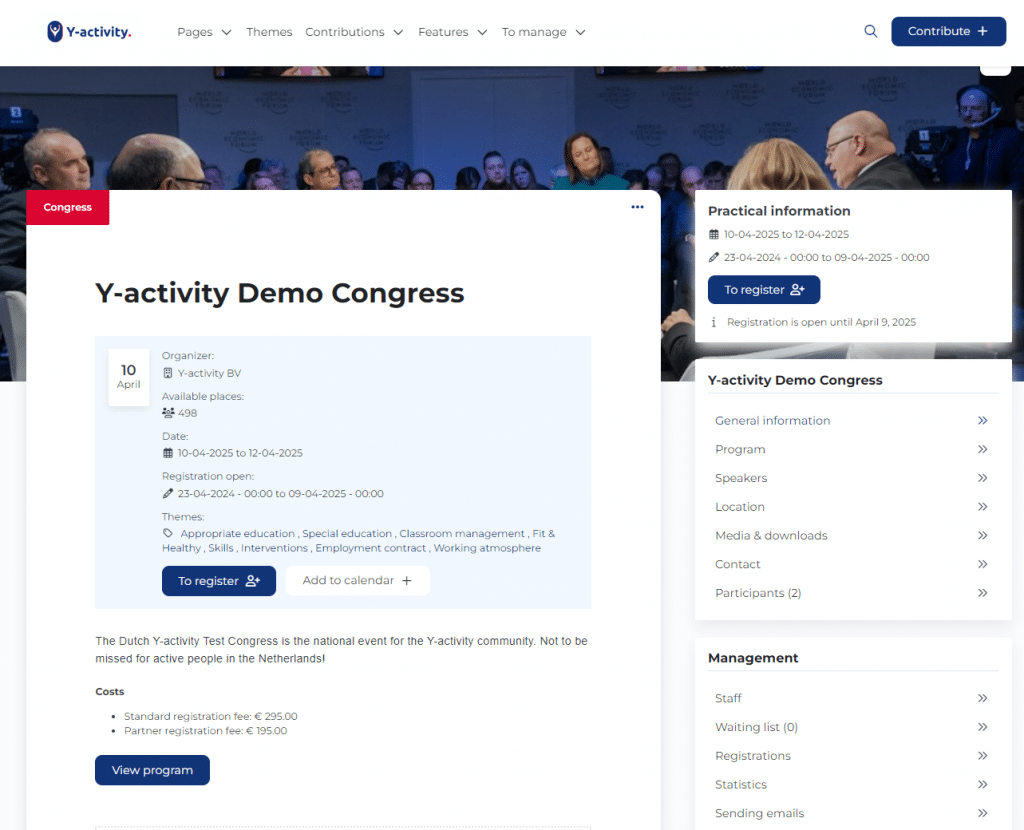
Templates for forms
June 2024
As an administrator, do you often create the same form? It is now possible to create templates for forms. Conveniently, this allows you to create a new form in no time.
Two Factor Authentication
June 2024
Would you like to add extra security to your community? We now offer 2-factor authentication for admins and optional for all members.

Registering for events without an account
January 2024
Yunits now has an intuitive and user-friendly onboarding wizard. This encourages users to complete their profiles. The more information they provide, the more relevant the information they receive.
The improved onboarding starts for new users after they activate their accounts. They are guided through three steps to complete their profile:
Step 1: Select areas of expertise. Users indicate what they know about and what they want to learn more about.
Step 2: Personalize the profile. This can be done by adding a photo and bio.
Step 3: Add personal social media accounts, such as LinkedIn and X. During these steps, a progress bar shows how far along the user is in the process, motivating them to complete all the steps.
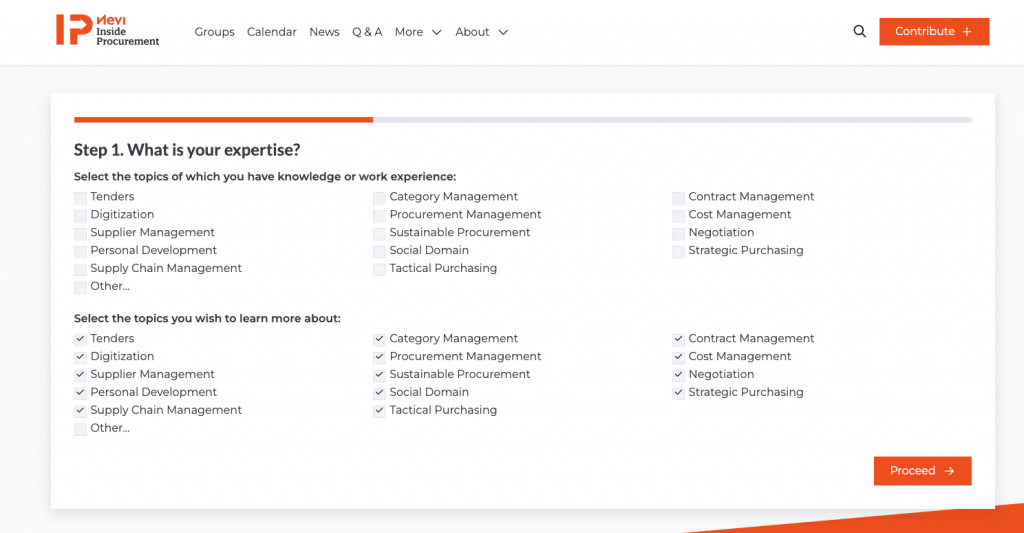
Understanding Email Effectiveness
November 2023
With the new ‘recent emails’ feature, administrators gain insight into the data of sent emails. You can see which emails were sent, whether they were opened, and which hyperlinks were clicked. This information is displayed in real-time on a user’s profile. It provides valuable insights into the interactions within your online community.
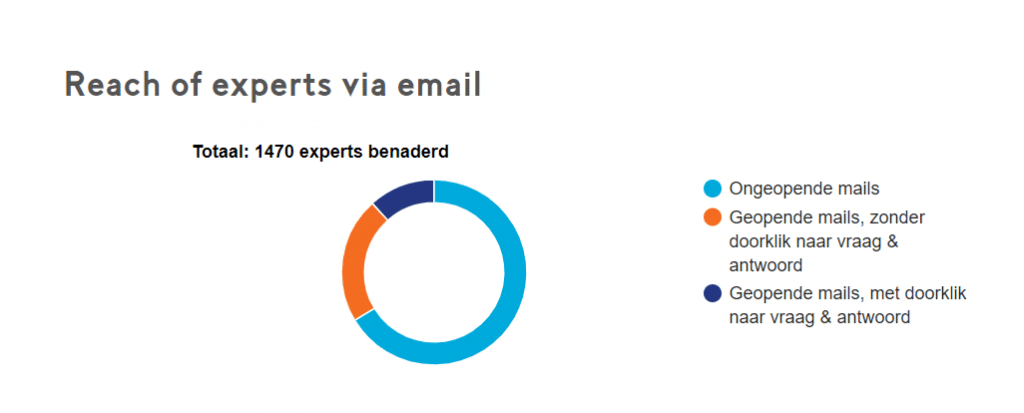
Registering for events without an account
March 2023
Are you organizing events for participants who do not have an account on your platform? You can now manage all registrations in one place. When creating an event, you indicate whether registration without an account is allowed. Then, non-logged-in visitors fill in their own details.
In addition, you can ask participants for additional information. This is useful if you want to know who needs a parking space or to identify dietary requirements for lunch. Participants with and without accounts fill in the same fields.
Multilingual platform
January 2023
Do you have an international community? Set up a fully bilingual Yunits platform now. On every page within the platform, participants can easily switch languages. And if a question or article is only available in one language? With the click of a button, the text is automatically translated. This is done using Google Translate.

Advanced search engine Elastic Search
September 2022
Organizations that consider a good search function important can now integrate the Elastic Search engine into their Yunits platform. This powerful search engine not only searches content and metadata but also documents (PDF, Word). You can link multiple data sources to the search engine. This way, you can access external knowledge bases and other websites on your platform, for example. The content of private groups is only visible in the search results if you are a member of those groups.
A big advantage of Elastic Search is that you can influence the search results. For example, exclude news articles that are more than 30 days old from the results. Or ensure that certain types of content score higher. Together, we will determine which content should score higher and which should score lower, and we will adjust the search engine accordingly.

